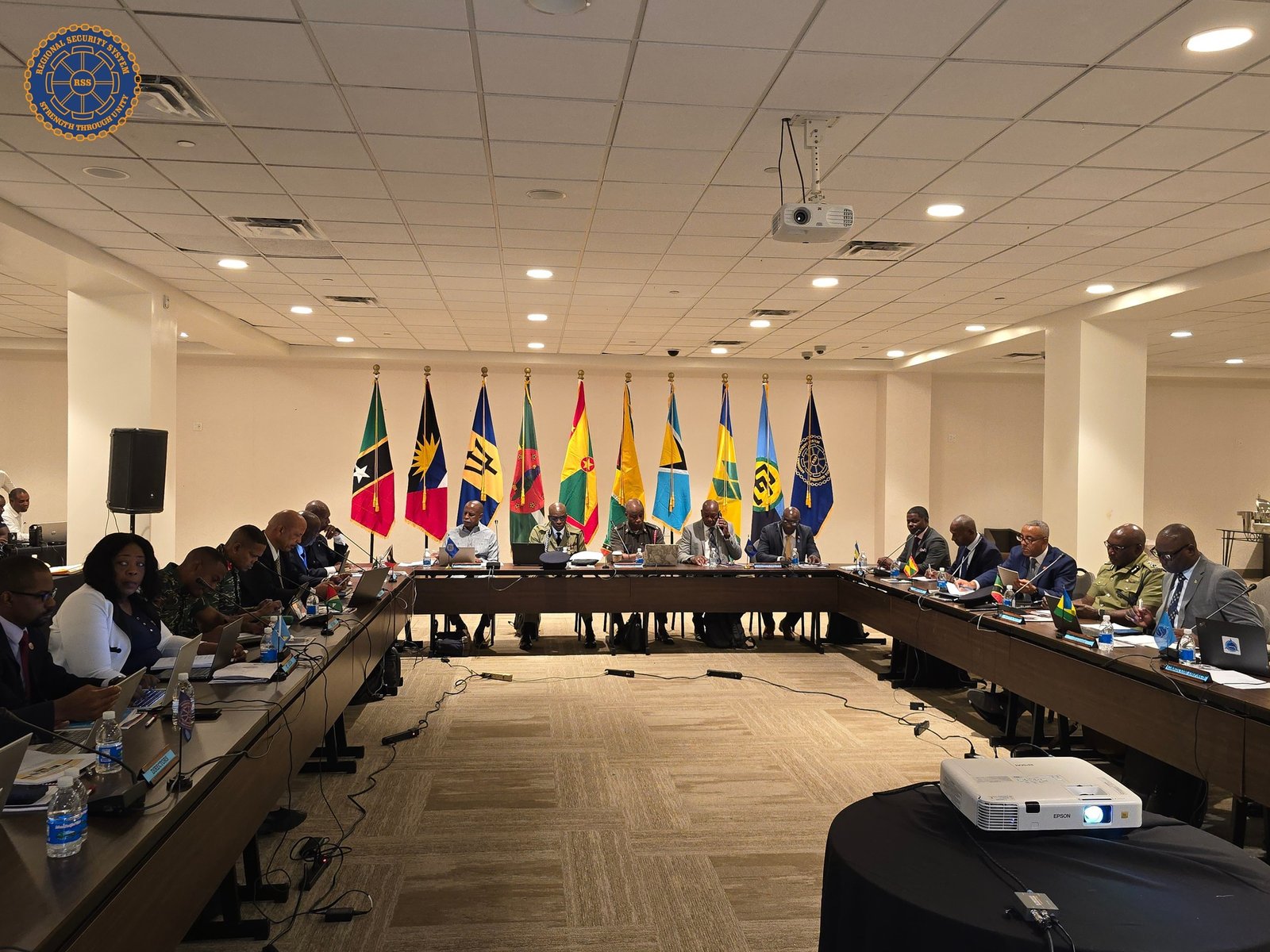Address by Commissioner of Police James Sutton to Ministers and Security Chiefs of the Regional Security System.
The Regional Security System (RSS) concluded a two-day meeting of Council Ministers and Security Chiefs from its member states on April 4th, held at the Marriott Resort in St. Kitts. The meeting served as a platform to discuss pressing regional security concerns, share updates on ongoing and future projects, and strategize collaborative efforts to address emerging threats. Commissioner of Police (COP) James Sutton of the Royal Saint Christopher and Nevis Police Force delivered a key address, emphasizing the interconnectedness of various security dimensions, including not only traditional threats like organized crime, drug trafficking, firearm proliferation, and cybercrime, but also the often-overlooked challenges posed by economic instability, geopolitical shifts, and environmental vulnerabilities. This holistic approach to security acknowledges the complex interplay of factors that can destabilize a region and underscores the need for comprehensive strategies that go beyond traditional law enforcement paradigms.
COP Sutton’s remarks highlighted the increasing seismic activity in the Caribbean archipelago, a stark reminder of the region’s susceptibility to natural disasters. He stressed the critical importance of incorporating disaster preparedness as a core pillar of national security planning. This involves developing modern, comprehensive, and efficient emergency response plans, robust communication systems, and well-defined rescue protocols that can be swiftly activated by national agencies. Recognizing that natural disasters can have far-reaching consequences, impacting not only human lives and infrastructure but also economic stability and social order, integrating disaster preparedness into national security frameworks becomes essential for building resilience and ensuring a swift and effective response to unforeseen events. This approach moves beyond reactive measures and emphasizes proactive strategies for mitigation, preparedness, and response.
The focus on disaster preparedness underscores the multifaceted nature of security in the Caribbean region. While traditional security concerns related to crime and violence remain important, the increasing frequency of natural disasters necessitates a broader understanding of security that encompasses environmental vulnerabilities. Climate change, with its associated impacts of rising sea levels, increased storm intensity, and altered rainfall patterns, poses significant challenges to the region’s small island developing states. These environmental changes can exacerbate existing vulnerabilities and create new risks, highlighting the interconnectedness of environmental security and traditional security concerns.
COP Sutton’s call for robust emergency response mechanisms reflects the need for effective coordination and collaboration among national agencies within the RSS member states. This entails not only developing comprehensive plans but also establishing clear lines of communication, clearly defined roles and responsibilities, and mechanisms for joint training and exercises. Regular simulations and drills can enhance preparedness and ensure that agencies are equipped to respond effectively in the event of a disaster. This coordinated approach is crucial for maximizing the impact of response efforts and minimizing the loss of life and property.
The RSS, comprising Antigua & Barbuda, Barbados, Dominica, Grenada, Guyana, Saint Kitts & Nevis, Saint Lucia, and Saint Vincent & the Grenadines, plays a vital role in promoting regional cooperation on security matters. The organization provides a platform for member states to share information, coordinate strategies, and pool resources to address shared challenges. This collaborative framework is particularly important in addressing transnational threats like drug trafficking and organized crime, which often require cross-border cooperation to effectively combat. The RSS also facilitates training and capacity building initiatives to enhance the capabilities of national security forces and promote best practices in law enforcement and disaster management.
The meeting of RSS Council Ministers and Security Chiefs signifies the commitment of member states to addressing the evolving security landscape in the Caribbean. By recognizing the interconnectedness of traditional security threats, economic stability, geopolitical factors, and environmental vulnerabilities, the RSS adopts a comprehensive approach to security that aims to build resilience and enhance the capacity of member states to respond effectively to a wide range of challenges. The emphasis on disaster preparedness reflects a proactive approach to mitigating the risks associated with natural hazards and building robust systems for emergency response. Through collaboration, information sharing, and capacity building, the RSS strengthens regional security cooperation and contributes to a more secure and stable Caribbean.
Share this content:












Post Comment